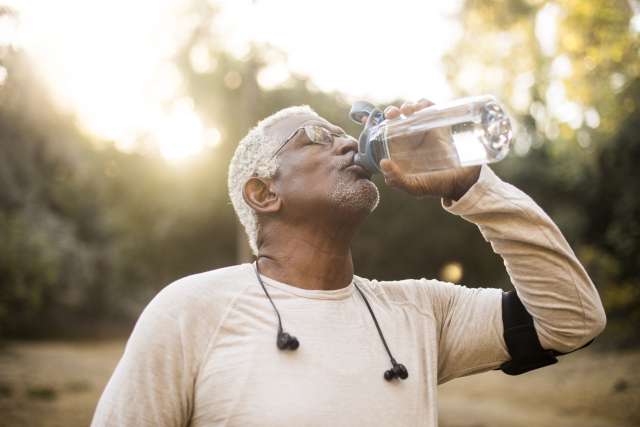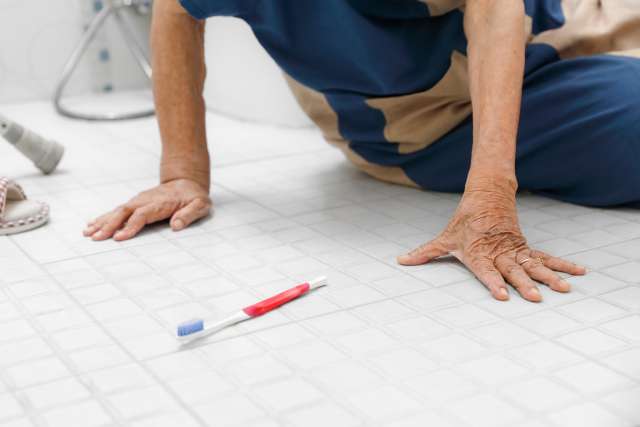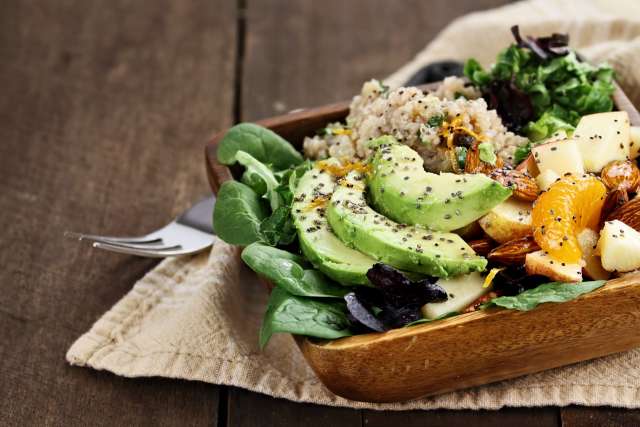Older people feel less thirsty
When you start to feel parched, your brain tells you to drink. But the sense of thirst naturally weakens with age.
One study found that when healthy older participants went without water for 24 hours, they didn’t feel as much thirst or dryness in their mouths compared to younger participants. Losing the impulse to drink puts older people at greater risk of dehydration and associated health problems.
Kidney function declines with age
The kidneys are key players in the body’s ability to stay hydrated. They help by filtering and conserving water. But as you get older, kidney function can decline. You’ll urinate more often, leading to greater fluid loss and a higher chance of dehydration.
Health conditions disrupt the body’s fluid balance
Chronic conditions such as heart disease and diabetes can impact the body’s ability to stay hydrated. These conditions can either increase fluid loss or make it harder for the body to regulate fluids properly. For example, heart failure can cause fluid buildup, and high blood sugar levels from diabetes cause the body to flush out excess glucose through urine.
Older adults have lower muscle mass and less water stored in the body
As you age, your muscle mass naturally decreases. Because your muscles hold water, less muscle mass means less water storage. Research shows that older adults have a lower percentage of total body water content compared to younger people. If your body can’t store as much water, you’ll get dehydrated more easily.
Mobility challenges
It’s a lot easier to get up and get a drink when your body lets you. For some older adults, physical limitations such as arthritis, joint pain or general mobility issues can make it challenging to get a glass of water.
Medications can increase fluid loss
Many common medications prescribed to older adults — including diuretics for high blood pressure and some diabetes medicines — can create more fluid loss. Most of these types of medications increase urine output, meaning you’ll lose fluids quickly and need to drink more water to stay hydrated.
Temperature regulation
Research shows that men ages 56-66 have a harder time maintaining a healthy body temperature (98.6 degrees Fahrenheit). So it’s easy for them to end up dehydrated after sweating through a workout or sitting in the sun.
How to drink more water as you age
The amount of water adults ages 65+ need varies from person to person, but current recommended amounts of daily fluid intake are 13 cups of water per day for men and 9 cups for women. And while you can’t stop your body from chronologically aging, you can take a proactive approach to staying hydrated.
Here are some easy ways to boost your hydration as you age:
- Eat water-rich foods: Aim to eat fruits and vegetables with higher water content, including watermelon, cucumbers and strawberries, at every meal. Choosing broths and soups is another great idea, especially in colder months, as long as they don’t conflict with dietary restrictions such as sodium.
- Keep water within reach: When drinking water is convenient, you’re more likely to do it. Keep a water bottle nearby whenever possible.
- Make water more exciting: If you’re bored with plain water, spice it up by freezing fruit, herbs or coconut water into ice cubes. Add the cubes to your water for a slow-release flavor boost.
- Sip through a straw: Many people end up drinking more fluids (without realizing it) when they use a straw. Invest in stainless steel or silicone straws you can wash and reuse.
- Create healthy drinking habits: Create a routine that promotes hydration. For example, you could drink a glass of water after each time you use the restroom throughout the day. You’ll replace lost fluids and stay hydrated.



